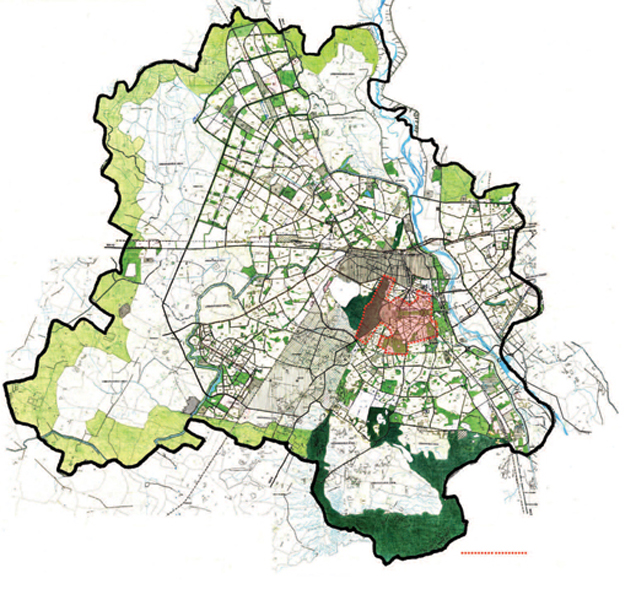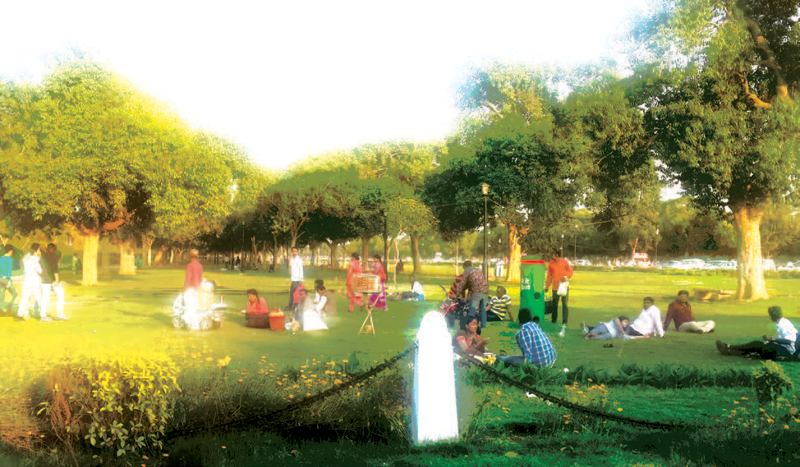Cities
Indian Urbanism Here and Now
LA 47 |
|
| Our planning for the future of the city is lacking in that it does not view the significant issues in association with each other. With the planning of Lutyen's Bungalow Zone (LBZ) - which is an invaluable landscape resource- being another future proposal, one needs to ensure this development does not overshadow the cultural backdrop of the city. Henceforth, it is imperative that urban planning respect the inherent values of a society and integrate their culture into the vision for tomorrow which must strive to be an ecologically friendly one.
|
|
 |
|
Our approach towards Lutyens Bungalow Zone (LBZ) illustrates a serious concern, that in urban planning in India today significant issues are addressed in isolation. LBZ, the erstwhile capital city of British New Delhi is designated as a Heritage Zone in the Master Plan of Delhi in recognition of "...(a) significant concentration, linkage or continuity of buildings, structures, groups or complexes united historically or aesthetically by plan or physical development." (MPD 2021)
In the debate on the future of Indian cities, planning for Lutyens Bungalow Zone is an opportunity which will be lost if it is treated as yet another 'project'. There has been little attempt towards aligning aspirations with the unquestionable cultural and ecological significance of the area. Landscape architects value its visionary planning, immense wealth of historic trees and unique open space character; conservationists are concerned about its disappearing heritage; residents demand the rights to build extensions and new floors; and environmentalists ask to preserve the green lung. The citizen, in the interim, has filled the gap in this debate by choosing to use this space, a luxury in a dense, overcrowded Delhi. The India Gate lawns on a summer evening or its flanking water features during chatt puja are a reality that has been kept out of the planning equation for far too long.
|
|


|
|

|
|
|
|
|